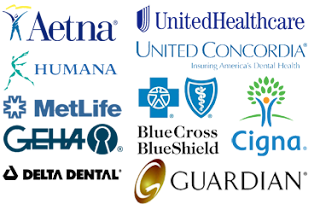5 Ways to Maximize Your Dental Benefits Plan

With terms like PPO, HMO, in-network, and out-of-network to describe dental benefits, it's no surprise that many don't understand how to make the most of their plan. This means you may be overlooking benefits that are critical to maintaining your oral health. Don't settle for just what you understand as part of your coverage. Read on for 5 simple tips to take advantage of everything your plan has to offer. Tip #1: Take Time to Understand Your Plan The best way to take advantage of your plan is to ensure you know the type of plan it is and its deductibles, copayments and annual maximums. There are two main types of dental plans: HMO Plans - with an HMO, you'll be required to choose a dentist in your primary network to handle most of your needs. You are charged a relatively low copayment for office visits, procedures etc. There is no coverage if you visit an out-of-network provider. HMO's typically have no deductible or maximum. PPO Plans - With a PPO, you





